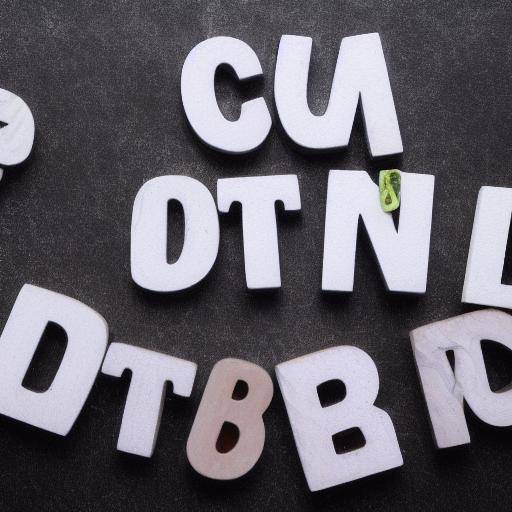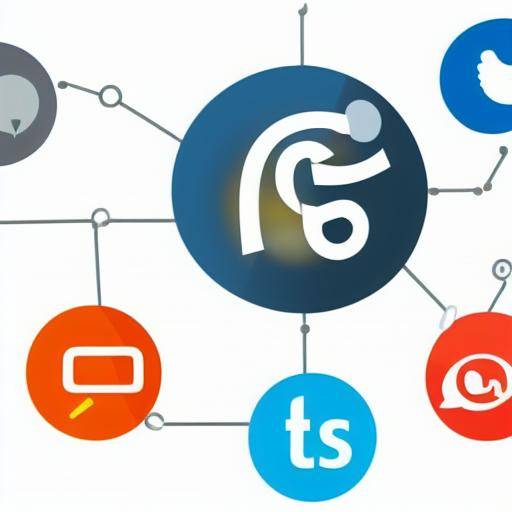
Introduction
I will begin this article with a provocative question: what do charismatic leaders, big sellers and successful negotiators have in common? The answer lies in its ability to persuade and convince others. Developing persuasion skills is undoubtedly a determining factor in achieving success in various aspects of life, whether in the professional or personal sphere. In this article, we will explore in depth how you can improve your persuasion skills, focusing on personal development and effective communication.
History and background
Persuasion skills have played a crucial role throughout history. From ancient Greek speakers to contemporary political leaders, the ability to influence others has been a powerful resource. In ancient Greece, prominent figures such as Demosstenes and Pericles dominated the art of persuasion, laying the foundations for the oratory techniques that last until today. In more recent times, charismatic leaders like Martin Luther King Jr. used persuasion to promote social and political change.
The evolution of persuasion has been marked by significant milestones, such as the publication of "Influence: Psychology of Persuasion" by Robert Cialdini, which has influenced modern marketing and sales strategies. Persuasion has also experienced a transformation with the arrival of the digital world, where the influence on social networks and content marketing have become powerful tools to persuade the public.
Deep analysis
Persuasion skills not only have an impact on the historical sphere, but also offer significant benefits in everyday life. Since persuading a customer to close a sale to influence decision-making at work, persuasion skills are essential for professional success. In addition, in the personal domain, persuasion skills can help you negotiate agreements, resolve conflicts and gain support from others.
An important aspect to consider is the balance between ethical persuasion and manipulation. While ethical persuasion is based on transparency, empathy and mutual benefit, manipulation seeks to gain advantages at the expense of others. It is therefore essential to understand how to use ethical and effective persuasion skills.
Comprehensive review
The development of persuasion skills requires the understanding and application of numerous techniques and approaches. From persuasion based on logic and evidence to emotional influence and convincing narrative, there are several strategies that can be used effectively. Some best practices include establishing credibility, identifying the needs of the interlocutor and presenting persuasive arguments.
It is important to consider that persuasion skills are also inherently linked to effective communication capacity. The way you convey your ideas, listen to others and adapt your message to the public are fundamental elements for success in persuasion.
Comparative analysis
Personal improvement and the development of persuasion skills are closely intertwined. The ability to persuade implies personal growth that encompasses trust, empathy and assertivity. Effective communication, on the other hand, is a fundamental pillar for persuasion, as it implies the clear and convincing transmission of your ideas.
Compared to persuasion skills, personal improvement focuses on the integral development of their capacities and attitudes, covering aspects such as leadership, emotional intelligence and problem solving. The combination of persuasion, personal improvement, and effective communication skills is a comprehensive approach to improving their influence and leadership skills.
Accessible practical advice and advice
Here are some practical tips you can apply to develop your persuasion skills, improve your personal development and improve your effective communication:
- Listen actively: Pay attention to the needs and concerns of others, which will allow you to adapt your arguments more effectively.
- It dominates the art of telling stories: Use compelling narratives to illustrate your points and emotionally connect with your audience.
- Develop your emotional intelligence: Understand your own emotions and those of others, which will help you establish empathy and mutual understanding.
- Practice Assertivity: Express your views with clarity and firmness, keeping respect for others.
- Build trust: Work to strengthen your trust and credibility so that your arguments are more persuasive.
Industrial perspectives and expert reviews
For a deeper vision, let's see the perspectives of experts on persuasion skills, personal improvement and effective communication. In an exclusive interview, renowned psychologist and author Daniel Goleman shared his vision of the importance of emotional intelligence in the development of persuasion and leadership skills.
"Emotional intelligence plays a crucial role in effective persuasion. By understanding one's and others' emotions, it can more significantly influence others, generating empathy and trust," Goleman said.
This comprehensive approach to persuasion, personal improvement and effective communication is supported by leaders from various sectors who agree on the importance of these skills for success in the working and social environment.
Cases of study and applications in real life
To illustrate the practical application of persuasion skills, consider the case of a businessman who seeks funding for their implementation. Through the effective use of persuasion and communication techniques, the entrepreneur manages to persuade potential investors, resulting in the financial support necessary to grow their company. This example illustrates how persuasion skills can be determinant in crucial business situations.
Future trends and predictions
Looking forward, it is clear that the skills of persuasion, personal improvement and effective communication will continue to play a significant role in an increasingly interconnected and communicative world. With the advancement of artificial intelligence and digitalization, new forms of application of these skills are likely to emerge, especially in the field of marketing, negotiation and leadership.
Conclusion
In short, the development of persuasion skills is essential for success in multiple aspects of life, which are reinforced by personal improvement and effective communication. By mastering these skills, you can exert a significant influence on your working and personal environment, promoting growth and progress. Implementing the tips and strategies shared in this article will provide you with the tools necessary to boost your development and achieve the desired success.
Do you have questions about how to develop your persuasion skills? Here are some frequent questions that can clarify your concerns:
Frequently asked questions
- What are the most effective techniques to persuade a reluctant audience?
- How can I apply persuasion skills in my professional and personal life?
- What is the role of empathy in the process of persuasion?
- What are the common challenges in trying to improve persuasion skills?
- How can I develop my ability to tell compelling stories to influence others?
- What is the impact of persuasion skills on leadership and decision-making?
I hope this article has provided a clear and insightful view of the importance and development of persuasion, personal improvement and effective communication skills. With the implementation of these strategies, you will be on the way to personal and professional success.






























